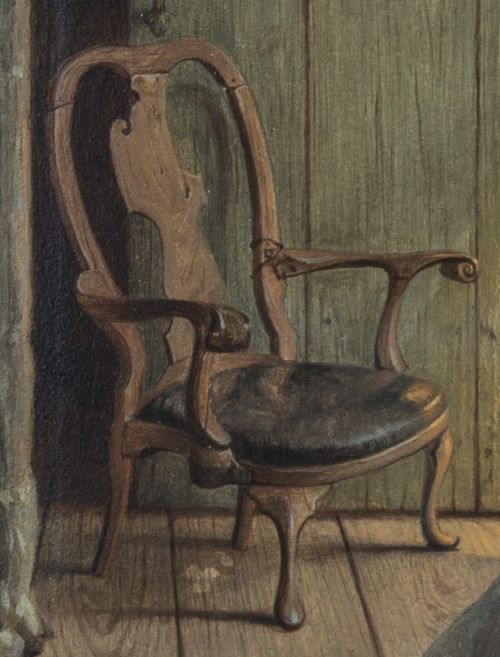Empty Chairs at Empty Tables – Les Mis Meets Civil War
I am a fan of historical dramas. Make it a musical and I’ll love it until my last breath. Don’t ask me how many times I’ve watched Hamilton. While I understand that many are not fully anchored in historical fact, they can help to illustrate themes within the events they portray.
 I recently (re)watched Les Misérables and one song toward the end drew me out of 1830s France and into 1860s America. The scene follows Marius, a young revolutionary who survived the massacre at the Barricade. His friends died at the hands of French soldiers who were there to quell the uprising. Marius, still recovering from his wounds, comes to the upstairs room where his friends were shot at point-blank range, defiant to the end. It’s a common rule in musicals that when the emotions are too great, the words must be sung rather than said. Dealing with the trauma of being alive when his friends were dead is well conveyed in the song he sings, trembling and tearful.
I recently (re)watched Les Misérables and one song toward the end drew me out of 1830s France and into 1860s America. The scene follows Marius, a young revolutionary who survived the massacre at the Barricade. His friends died at the hands of French soldiers who were there to quell the uprising. Marius, still recovering from his wounds, comes to the upstairs room where his friends were shot at point-blank range, defiant to the end. It’s a common rule in musicals that when the emotions are too great, the words must be sung rather than said. Dealing with the trauma of being alive when his friends were dead is well conveyed in the song he sings, trembling and tearful.
The lyrics made me think of veterans who made it off the battlefield, while so many of their comrades did not. The concept of survivor’s guilt is evident in many of their memoires and letters, or in the actions they took after the war to cope with the horrors they endured. I’d like to imagine that the words of Marius were echoed in the hearts of soldiers – and civilians – as they tried to make sense of the war and the sacrifices of the men who fought it.
There’s a grief that can’t be spoken
There’s a pain goes on and on
Empty chairs at empty tables
Now my friends are dead and gone
Here they talked of revolution
Here it was they lit the flame
Here they sang about tomorrow
And tomorrow never came
From the table in the corner
They could see a world reborn
And they rose with voices ringing
And I can hear them now!
The very words that they had sung
Became their last communion
On this lonely barricade
At dawn
Oh my friends, my friends forgive me
That I live and you are gone
There’s a grief that can’t be spoken
There’s a pain goes on and on
Phantom faces at the window
Phantom shadows on the floor
Empty chairs at empty tables
Where my friends will meet no more
Oh my friends, my friends
Don’t ask me what your sacrifice was for
Empty chairs at empty tables
Where my friends will sing no more
If you’d like to hear it performed by Eddie Redmayne in the 2012 film of Les Misérables, see below.
Great post. Often there’s less survivor’s guilt than a sense of wonder they made it. Each particular group of survivors had their own unique way of visualizing and processing what they went through. Melancholy acceptance of failure, like Lee. Hot fury, like Martin Gary. Quiet pride, like Grant. An occasional smart aleck like Watkins. Victor and vanquished taking refuge in the shared coping mechanisms of veteran’s associations. Some going on to build a tomorrow. Some seeking to recreate a nonexistent past.
No, I think most veterans simply seek deeper understanding of what happened. War tends to be rushed, hurried, bouncing from one incident to another. Only later, after the fighting has faded do you start to wonder why this order was given, why that plan was discarded. And, sometimes, why that person had to die, but another did not. When I was a young officer, I came to know some WW II veterans through their veteran association. They were the consummate experts on their war. They read all the books, watched all the movies, no matter how inaccurate. They wanted to understand every minute detail. In the Army, we have a saying, “we tend to fight the last war.” As an emotional response, you are always focused on the last war.
Tom Crane
Thoughtful post. Another connection is that the novel Les Miserables was published during the Civil War and was a huge bestseller, popular with both Union and Confederate readers.
There is an American song on this subject titled “The Vacant Chair” sung beautifully by Kathy Mattea. ( https://www.youtube.com/watch?v=wXtjE9KaMYI )